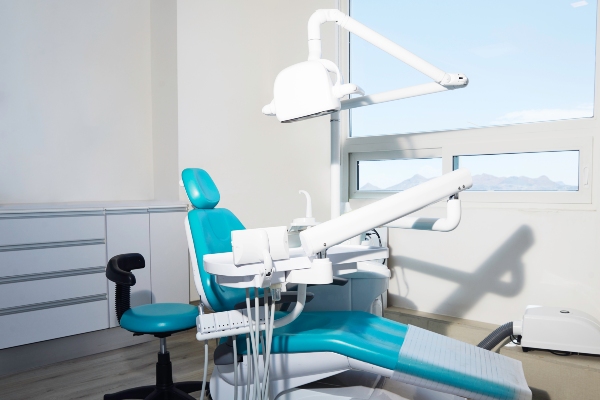Top 5 Dental Infections
Dental infections are no laughing matter. Whether you have a minor infection or a life-threatening one, you need treatment. Find out everything that you should know about the top five dental infections.
1. Gum Infection
Many people think of a gum infection as a minor issue.While it may not require emergency dental care, it is serious business. Although minor at first, a gum infection can turn into something more serious. If left untreated, your infection can worsen and spread.A gum infection occurs when bacteria gets into your gums. Once there, it can cause you discomfort. If it progresses, you can develop periodontitis. Plaque grows below your gum line and starts to spread. This causes the connective tissues and bone in your jaw to start breaking down. Eventually, you may lose your teeth.To prevent periodontitis, you should contact your dentist if you notice signs of a gum infection. Be on the lookout for bleeding gums or sensitive gums. Be sure to practice good dental hygiene, and you may be able to reverse the effects of gum disease. Otherwise, you need a dentist to handle the problem.
2. Cavities
Another type of oral infection is a cavity. Cavity is another word for tooth decay. When you have a build-up of plaque on your teeth, you become at risk for a cavity. As plaque builds up, bacteria continues to grow. It secretes acid that eats away at your teeth. Although the exterior of your teeth is strong, the interior isn’t quite so strong. When the interior becomes exposed, it reacts to the bacteria. It can become swollen and irritated. As a result, you may experience pain and discomfort.If you don’t get treatment for a cavity, the infection can spread. You need to see a dentist to make sure that you get proper treatment. If not, you can develop an abscess.
3. Post Dental Work Dental Infections
Although dental work is essential to your oral health, you do need to be on the lookout for dental infections. It is uncommon for dental work to lead to an infection. However, it can happen. When you have any type of dental work, bleeding can occur. This bleeding gives the bacteria in your mouth a way to get into your bloodstream. As a result, you can develop an infection.All dentists work hard to limit the chance of infection. To do so, they clean the area well and do meticulous work. They also may prescribe preventative antibiotics to people who may be more susceptible to dental infections. But much like individuals who get an infection after going in for surgery, individuals can get an infection from dental work. After you have dental work, look out for the signs of infection. If you have one, you should go to a dentist immediately.
4. Abscess
One of the most serious dental infections is
an abscess. An abscess is an infection in your jaw, throat, or mouth. Initially, it starts as a tooth infection or cavity. If you have an untreated cavity or tooth infection, it could become an abscess. Often, an abscess occurs when an individual doesn’t practice good oral hygiene or does not visit a dentist regularly.If you have an abscess, you might feel extreme pain in your mouth tissue. Many people find the pain unbearable and call an emergency dentist. In some cases, you might notice puss at the infection site. If you have puss or extreme pain, you should contact a dentist immediately. You may need a dentist to drain your abscess. To properly treat the infection, you also need to start antibiotics. It is also possible that your dentist will perform a root canal.Attempting to treat an abscess on your own is dangerous. Only your dentist can recommend the proper course of treatment. Without treatment, you risk the infection spreading. You should contact your dentist as soon as you suspect an abscess.
5. Sepsis
Sepsis is the most serious of all dental infections. When you have an untreated dental infection, it can lead to sepsis. You may also know of sepsis as blood poisoning. It is a response that your body has to any type of serious infection or injury. If you have any type of dental infection that doesn’t get treatment, the end result could be sepsis.If sepsis does not get treatment, the result can be fatal. In fact, one-third of individuals in the world with sepsis die from the condition. Even when individuals do survive, they can have life-long symptoms. This includes chronic pain, fatigue, amputations, and organ dysfunction.Fortunately, preventing sepsis is as easy as practicing good dental health. When you brush your teeth regularly, you have a good chance at fighting off infections. To make sure you have no hidden infections, you should
see a dentist for regular check-ups. They may be able to prevent an infection or alert you to any infections you already might have in our mouth.

